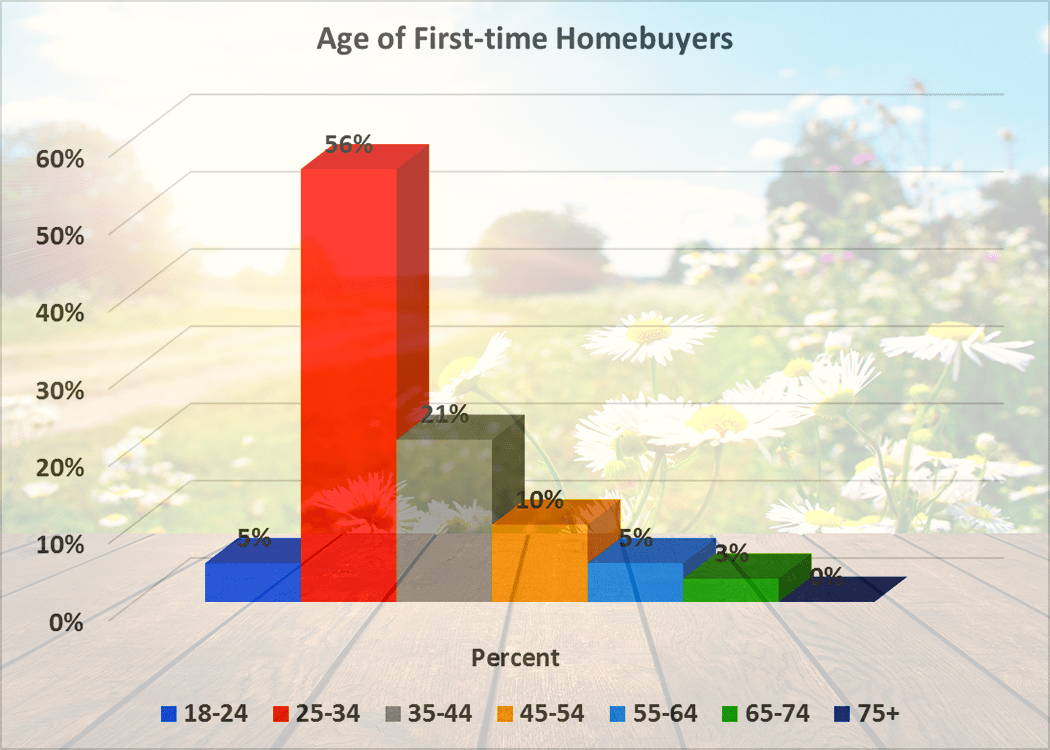The 40-year-old homebuyer
We live in a changing world, one where many personal benchmarks are delayed. We tend to be a first-time homebuyer at a later age. But if you’re 40 and not yet checking open houses don’t worry, it’s not too late to be a homeowner.
Verify your new rate40 is the new 30
According to research from the National Association of Realtors, 26 percent of Gen-Xers – those aged 37 to 51 – are first-time buyers. It’s not uncommon to buy a home after age 40. One reason for later homebuying is that we tend to delay marriage and with it the purchase of a house.
“For decades”, says The Atlantic, “The average age at which Americans marry has been creeping higher. In 1960, the average groom was almost 23, and his bride a few months over 20. According to data from Pew Research Center, by 2011, average marriage age had climbed to nearly 29 years for men and 26 and a half years for women.
First-time homebuyer guide: finding the perfect house
“There’s been lots of data supporting the notion that more and more, young adults are delaying marriage. Experts have provided many theories explaining this phenomenon: gender dynamics have changed, casual dating is more encouraged, more women are heading to college and then on to demanding careers, and – most recently – maybe most young adults just aren’t interested in getting married anymore.”

First-time homebuyer over 40
For those buying after age 40, there are actually some advantages built into the system.
First, when people enter the housing market at a younger age, they lack the time it takes to obtain credentials, develop a career, save money, and create a solid income stream. By age 40, these problems usually gone. For instance:
- Student loans balances are smaller if not paid off
- School is finished
- You have been active in your field for a decade or more
- In many fields with age and experience come seniority
- You have moved up the corporate ladder or started your own business
- Your credit history has been established
For lenders, you’re a known commodity with a thick credit file, an attractive mortgage candidate.
Age discrimination is illegal in mortgage lending
Second, the lending system actually says your age cannot be held against you. According to the Federal Trade Commission the Equal Credit Opportunity Act (ECOA) “forbids credit discrimination on the basis of race, color, religion, national origin, sex, marital status, age, or whether you receive income from a public assistance program.
How to get a mortgage when you're retired
“Creditors may ask you for most of this information in certain situations, but they may not use it as a reason to deny you credit or to set the terms of your credit. They are never allowed to ask your religion. Everyone who participates in the decision to grant credit or in setting the terms of that credit, including real estate brokers who arrange financing, must comply with the ECOA.”
Notice that “age” is a class under ECOA and this always raises one question: Can a 90-year-old get a mortgage? If qualified on the basis of income, credit and the other factors normally used to underwrite a mortgage the answer is yes. Why? Because – as the FTC says – you cannot be denied credit on the basis of age.
Different approach to mortgage financing
Third, you may want to approach mortgage financing differently than someone in their 20s or 30s. Because you are likely well established in terms of income and credit. You have the ability to get not just a “mortgage” but a mortgage tailored to your specific needs.
First-time homebuyers" how to choose the right mortgage
For example, if you plan to retire at age 65, you might want a 30-year mortgage – one that you can prepay month after month so that the entire mortgage balance is paid off in 15 or 20 years, thus eliminating one of the largest potential retirement costs.
Or, you might simply get a 15- or 20-year mortgage. In either case by reducing the length of the loan term you can save tens of thousands of dollars, and that’s a good thing at any age.
What are today’s mortgage rates?
Current mortgage rates for new and repeat borrowers have edged slightly higher than they were a month ago. However, they are lower than they were six months ago. It’s still a very attractive time to buy a house. Check with a few competing lenders to get the best deals available.
Time to make a move? Let us find the right mortgage for you
